 Stephen Geller Katz LCSW-R
Stephen Geller Katz LCSW-R
Misophonia Cognitive Retraining Therapy
 Stephen Geller Katz LCSW-R
Stephen Geller Katz LCSW-RMisophonia Cognitive Retraining Therapy
Misophonia Cognitive Retraining Therapy, as featured on the MTV True Life episode: “I Have Misophonia” premiering Friday, December 16th, 7:00 PM EST. See Clip >
|
|
|
| Moderate to severe anxiety triggered by chewing sounds, including: | ||
|
|
|
You may also be affected by visual stimuli, such as repetitive foot or body movements, fidgeting or movement you observe out of the corners of their eyes. Intense anxiety, rage and avoidant behavior may develop as a result of misophonia.
 * Do you feel your family and friends don’t understand how much you suffer?
* Do you feel your family and friends don’t understand how much you suffer?
* Do you often feel you can just suffer through a social event where there is eating present only to find that you must “escape” before you have a panic attack?
* Do you find that some people are at first understanding and make some efforts not to make the triggering sounds in front of you, but soon forget and constantly have to be reminded, causing you to feel angry, anxious and depressed?
* Are you avoiding social activities that you enjoy because of the misophonia?
* Are you fearful of losing your job and/or is the misophonia effecting your job performance?
You may be a candidate for Misophonia Cognitive Retraining Therapy, or MCRT.
Stephen Geller Katz, LCSW-R, with over 20 years of clinical experience, a New York University graduate, developed Misophonia Cognitive Retraining Therapy and founded Misophonia Cognitive Center™ in response to the growing number of people with Misophonia coming to his private practice from audiologists and ENTs. He discovered that by helping people to retrain and reinterpret the thoughts around their Misophonia, anxiety and depression symptoms began to improve. But even more important so did the Misophonic trigger response.
What are the specific causes and reasons related to misophonia and trigger responses? Misophonia is a neurological condition in which specific sounds—often mundane to others—evoke intense emotional and physiological reactions. These “trigger” sounds can range from chewing and pen clicking to breathing or foot tapping. Understanding the science behind misophonia and how the brain processes these trigger responses is essential for anyone affected by or working with this condition. As research continues to expand, science is uncovering a clearer picture of how misophonia works—and how it can be treated.

Misophonia, which literally means “hatred of sound,” is not just a matter of irritation. It involves an involuntary fight-or-flight response, often accompanied by feelings of anger, anxiety, or panic. While it is not yet officially classified as a standalone psychiatric disorder in major diagnostic manuals like the DSM-5, it is widely recognized by clinicians and researchers as a real and impactful condition.
Recent neuroimaging studies reveal that individuals with misophonia show heightened activity in certain regions of the brain when exposed to trigger sounds.
These neurological patterns help explain why reactions in misophonia are so strong, and why they can feel out of proportion to the actual sound.
Trigger sounds tend to be soft, repetitive, and human-generated. Examples include:
These sounds bypass typical cognitive filtering processes and are instead fast-tracked to emotional and threat-processing centers, leading to the misophonic response.
The body reacts to misophonia triggers with an acute stress response. This includes:
Because this reaction is so intense, many people with misophonia also develop anticipatory anxiety—stress caused not by the trigger itself but by the fear of encountering it.
There is no single known cause of misophonia, but research suggests it is a combination of neurological, genetic, and environmental factors.
One of the most promising treatment approaches is Misophonia Cognitive Retraining Therapy (MCRT), developed specifically for people with misophonia. This therapy combines cognitive-behavioral techniques with sound desensitization and emotional regulation strategies. Over time, it helps the brain form new associations with trigger sounds, reducing the severity of responses.
Misophonia is more than just a strong dislike of certain noises—it is a neurological condition with measurable brain activity patterns and physiological consequences. By understanding the science behind misophonia and its trigger responses, individuals can feel validated in their experience and empowered to seek evidence-based treatment.
If you or a loved one is struggling with misophonia, support is available. Stephen Geller Katz, offers specialized treatment at the Misophonia Cognitive Center™ using proven cognitive retraining techniques.
All sessions are conducted online, and Dr. Katz speaks five languages, making care accessible and inclusive to clients worldwide.
MISOPHONIA COGNITIVE CENTER™
Stephen Geller Katz LCSW
19 West 34th Street
Penthouse Floor
New York, NY 10001
646-585-2251
In this article, understanding the triggers of misophonia, we will discuss specific triggers, their impact, and strategies to cope with them. Misophonia, a condition characterized by strong emotional reactions to specific sounds, can significantly impact daily life. Understanding the triggers of misophonia is crucial for managing the condition effectively.

Misophonia triggers are typically everyday sounds that most people find negligible. However, for individuals with misophonia, these sounds can provoke intense emotional reactions such as anger, anxiety, or panic. The most common triggers include:
Other common triggers include breathing sounds, throat clearing, and specific speech sounds, such as certain consonants or sibilant sounds.
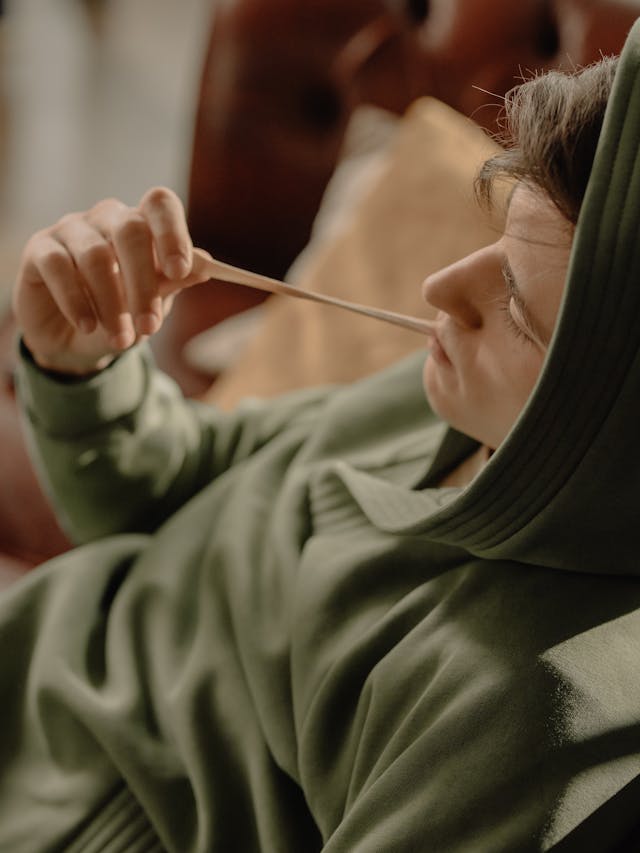 The impact of misophonia triggers can be profound, affecting various aspects of life. For example, the emotional reactions elicited by these sounds can lead to avoidance behaviors, where individuals try to evade situations where they might encounter their triggers. This can result in social isolation, strained relationships, and difficulties at work or school. The constant state of alertness and anticipation of trigger sounds can also lead to heightened anxiety and stress.
The impact of misophonia triggers can be profound, affecting various aspects of life. For example, the emotional reactions elicited by these sounds can lead to avoidance behaviors, where individuals try to evade situations where they might encounter their triggers. This can result in social isolation, strained relationships, and difficulties at work or school. The constant state of alertness and anticipation of trigger sounds can also lead to heightened anxiety and stress.
Research into misophonia is ongoing, but recent studies have provided insights into the mechanisms behind the condition. Scientists believe that misophonia may involve abnormal connections between the auditory cortex (the brain area responsible for processing sounds) and the limbic system (the brain area involved in emotions). This abnormal connectivity may cause the brain to associate certain sounds with intense emotional reactions.
A study by Newcastle University found that individuals with misophonia showed heightened activity in the anterior insular cortex, a brain region involved in processing emotions and interoceptive awareness. This heightened activity suggests that the brains of people with misophonia are wired to respond more intensely to certain sounds.
While there is no cure for misophonia, several coping strategies can help individuals manage their reactions to triggers:
Making changes to your environment can help reduce exposure to triggers and create a more comfortable living or working space.
Developing healthy behavioral responses to triggers can improve overall well-being and reduce the emotional impact of misophonia.
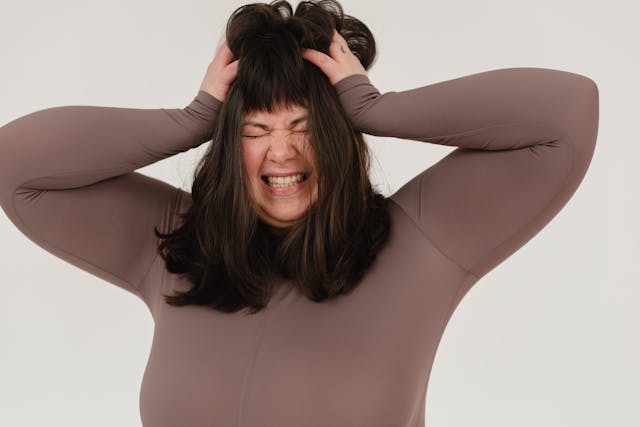
Seeking professional treatment can provide long-term strategies and tools for managing misophonia.
Understanding the triggers of misophonia and their impact is crucial for managing this condition effectively. By implementing coping strategies such as environmental modifications, behavioral techniques, and seeking professional treatment, individuals with misophonia can improve their quality of life.
Stephen Geller Katz at the Misophonia Cognitive Center™ offers specialized online treatment services to help individuals manage misophonia symptoms.
Stephen Katz, LCSW
646-598-2251
• Convenient online sessions
• Dr. Katz is multi-lingual
For more information about Dr. Katz and his treatment services, visit https://www.misophoniacognitivecenter.com/.
What are the top triggers for people who have misophonia? People diagnosed with this condition need to not only identify their triggers but they need to be able to anticipate where they might hear them. People with this condition often have major outbursts when they come in contact with their triggers, which can often make them dangerous to themselves and others around them.
Unfortunately, control only comes naturally among people with different triggers. Therefore, people can often feel like those with the condition are overreacting. They may fail to realize that the reaction might be subdued, as the person with this condition might be trying to control it.
Furthermore, getting a deeper understanding of an individual’s triggers is also essential for the person’s friends and family since they can help them when necessary. In this short guide, we will go over all of the most popular audio triggers that a person with Misophonia might be disturbed at,
One of the factors that make Misophonia, such as a difficult health condition, help is that anything could be a trigger. And while some can have a reason why certain sounds can be so triggering, at other times, they cannot find the words to explain why they find something so disturbing.
However, nearly every person with Misophonia can relate to a handful of triggers. These include:
Other smaller triggers can include:
Various researchers have made one of the most important breakthroughs concerning this specific condition: the triggers do not just have to sound. Some visual cues can elicit a very similar reaction from individuals who have Misophonia.
Some of these visual triggers include:
These are just some of the Misophonia triggers that do not have audio cues but can still elicit a similar reaction from people.
Living with Misophonia is anything but easy, as people need to find a way to not just avoid their triggers but suppress their emotions if they happen to meet them. While some will have much milder symptoms, the most they can feel is mild discomfort.
However, people who experience more severe symptoms can have an especially hard time dealing with the emotions they feel. Since they can either feel a sudden rush of anger or despair, they can often lash out at someone or something if they come in contact with their trigger.
One short hack many have come up with when dealing with this unique situation is to recreate the trigger yourself. If it is an audio cue, you can repeat it in your mind, and nothing will happen. It can be a great way to help create a more positive image of one of the triggers.
The causes for Misophonia are multiple and confusing, which makes it different triggers so much more so. But with the triggers mentioned above, you will better understand how to deal with the daily challenge of trying not to pay attention to the many triggers.
If you’re struggling with Misophonia and have very extreme reactions to small triggers, then Stephen Katz at the Misophonia Cognitive Center™ can help you. With over 20 years of experience, he developed Misophonia Cognitive retraining therapy, which has in some cases completely cured those suffering from this condition.
Call today to schedule a convenient online consultation.
Stephen Geller Katz LCSW-R
646-585-2251
Tele-Video Sessions
Speaks 5 languages
International Patients Welcome
Do you hate the sound of chewing? The best moments for many people’s life is having dinner with their families. However, for some people, dinner time with family can feel like a burden, not because they are introverted. Instead, they may suffer from a condition called misophonia.
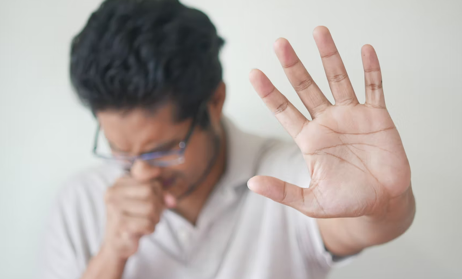
(Source)
In this condition, people cannot tolerate the sound of gulping, chewing, and crunching. These sounds trigger their anxiety and make them angry. If you have a similar reaction when someone chews food nearby, you should visit a doctor for misophonia treatment.
Misophonia is a condition wherein people develop strong and negative feelings when they hear certain noise. These sounds actas triggers for them, causing them to react. A person with misophonia might fight when they hear the noise. Their brain sends signals to the body to immediately stop the sound. That is why they hate the sound of chewing. There are a plethora of sound triggers that can irritate. These sounds can be so annoying to put you in fight or flight condition.
Current Biology published research with 42 participants to understand how their response to certain sounds. Among these participants, there were 20 misophonia patients, while 22 people were normal. Researchers found that misophonia patients found the common sound triggers irritating. Meanwhile, other participants were normal when they hear the same sound.
Noise sensitivities act similar to depression and anxiety and the patient reacts to stop the source from producing the sound. As a result, they show extreme emotions to people in their surroundings. Fixing this problem is not possible, but you can try various techniques to deal with the triggering sounds. Here are some ways to reduce the effects of misophonia:
When you try hard to avoid the triggering sound, it will grab your attention. Therefore, avoidance is not a solution; in fact,it will increase your concentration to notice the sound. The best solution is to divert your mind towards other tasks and act normal.
You can reduce the effect of triggers by systematically exposing yourself to the sound. You will find this strategy relaxing and helpful to develop mindfulness skills. When your brain and ear develop a habit to ignore the sound, you won’t even remember you have misophonia.

(Source)
A doctor can help control your emotions towards triggering sounds by using various techniques. Visit an experienced doctor to reduce your anxiety disorders. These disorders such as obsessive compulsive disorder and post traumatic stress disorder can be underlying conditions for misophonia. CBT and Tinnitus Retraining Therapy are major misophonia treatments that your doctor might recommend.
Some people develop misophonia because they suffer from stress and anxiety. If stress is causing triggering sounds, you should try mindfulness techniques to cope with it. Relaxing techniques such as yoga can also act as a treatment for misophonia.
You can find many online groups and forums where you can discuss your triggers and symptoms. Experts in these groups will share effective techniques to deal with this misophonia. But, make sure that you connect with productive and effective groups.
If you hate the sound of chewing to the extent where it triggers your fight or flight response, you should contact the Misophonia Cognitive Center™ and consult with a professional. Stephen Geller Katz LCSW is a 30 year experienced specialist in sound disorders. Dr. Katz will evaluate your condition and prescribe effective treatment so you can better tolerate the noise of chewing.
Schedule an online session today
Misophonia Cognitive Center™
19 West 34th Street
Penthouse Floor
New York, NY 10001
646-585-2251
Do things other than sounds trigger misophonia? Sure, you might find little noises like the tapping of a pen or loud chewing to be annoying, but what if they made it impossible to focus on anything else? People suffering from misophonia don’t consider these sounds to be annoying but unbearable. Misophonia is a Greek word that means hatred of sound and was used to name the condition in 2001.
People also refer to this sound disorder as selective sound sensitivity syndrome. This condition is an abnormality of the brain, and people suffering from t exhibit physiological and psychological symptoms. In a recent study, experts compared the MRI scans of people with misophonia before and after exposing them to triggering sounds. They studied their brain structure and reaction to different triggering sounds.
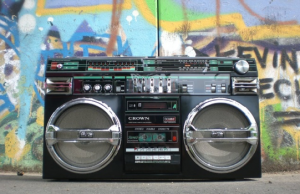
(Source)
Experts don’t know the actual cause and mechanism of this condition, but it is obvious that most people find auditory triggers harmful. Other than auditory, people also find some visual images as triggers. However, the sound can be so much pain for these people that they cannot tolerate it and undergo a fight-or-flight situation. These sounds also trigger their anxiety, causing them to panic and rage. Also, it leads to depression, isolation, and avoidance. Since there are limited researches, we know little about the condition.
Triggering sounds aren’t the same for everyone. What’s triggering for one person isn’t necessarily triggering for someone else. Furthermore, the intensity and may change with time. However, the most common triggers in this condition are mouth sounds. Here are some examples:
Besides sounds from the mouth, people also find these sounds irritating:
With time the auditory triggers turn into visual, causing irritation and annoyance. Visual triggers include:
You’re probably wondering how people with misophonia perceive triggers? To them, annoying sounds are more intense and feel like nails on a chalkboard. Suppose that whenever you hear a squeaky noise, your nerves flare, skin prickles, and you will do anything to make it stop. Sometimes, people don’t find these sounds annoying, but with misophonia patients, it is an everyday struggle. Furthermore, they also hear sounds that normal people’s brains don’t even pay attention to.

(Source)
If you are looking for a single word that explains how a person with misophonia feels, it would be “awful.” Their blood starts to boil, the heart starts racing, and stomachaches are common.
When people suffering from misophonia listen to provoking sounds, they experience physiological effects. A few studies in this regard suggest that people with this condition undergo physical responses, including measurable autonomic responses. However, when people are in a control group, they don’t physically respond to these triggers. Misophonia and tinnitus, which are ringing in the ear, share some similarities. Consequently, some studies suggest that misophonia is a hyperconnectivity disorder. This makes it different from tinnitus. The reaction between the limbic and auditory system of the brain cause irritation and pain.
The hyperconnected nature of this condition means that there are numerous connections between neurons. Because these neurons relate to emotional and auditory abilities, people cannot tolerate triggering sounds. In one study, experts used MRI imaging to determine the brain’s response in this condition. They found that people with misophonia exhibit an exaggerated reaction. Experts analyzed and identified the changes in the brain after the participant listened to triggering sounds. The sounds influence the anterior insular cortex of the brain, which processes emotional feelings. The study confirmed the connection between the default mode network and the AIC. These neural networks promptly affect memories and associations.
Some brain sections of a person with misophonia have higher myelination in their nerve cells compared to the average person. That’s why their brain generates a higher level of connectivity. Furthermore, research suggests that high-level activity in the brain’s AIC creates different perceptions. Therefore, they experience skewed perceptions about a sound that isn’t really a threat.
If you read this article, it means that you or a loved one gets highly irritated when exposed to triggering sounds or events. You need a solution. The best way to overcome the effects of misophonia is to opt for Misophonia Cognitive Retraining Therapy. Schedule an online session with the Misophonia Cognitive Center™ to discuss your problem with a professional sound disorder specialist.
To schedule a quick online session with our expert Stephen Geller Katz LCSW-R, contact us at 646-585-2251.
What are the most common misophonia triggers? Misophonia is a Greek word meaning “hatred of sound.” However, do not assume that the sounds of rough chalk on a chalkboard or fork scraping on a plate can trigger Misophonia in anyone.
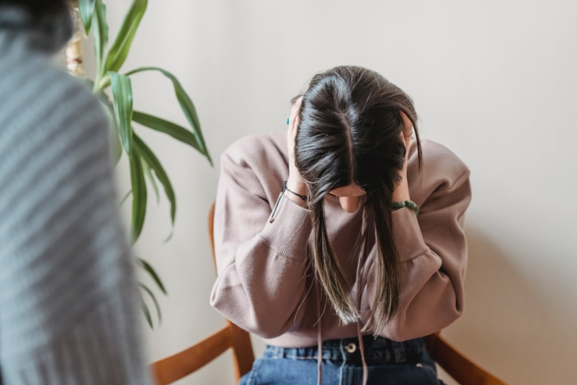
(Source)
Researchers and scientists refer to Misophonia as a selective sound sensitivity syndrome. Despite that, it is not on the list of the DSM-5 (Diagnostic and Statistical Manual of Mental Disorders) as a recognized sound disorder.
Misophonia can have mild to intense effects on an individual’s life. However, severe cases involve extreme reactions that can cause aggression and anger to a great degree. In addition, numerous emotional responses occur when people with Misophonia hear certain sounds or noises.
Bear in mind that some people may not find these sounds and noises, such as rain, chewing, pen tapping, etc., unpleasant. Therefore, it is common to misunderstand someone’s sound sensitivity as a general attitude or irritation. The reactions that misophonic people may show include panic, aggression, distress, anxiety, etc.
In simple words, certain common sounds may feel like nails on the chalkboard to misophonic people. Moreover, it is extremely difficult for misophonic people to control their reactions, such as anger towards the person or object involved in the Misophonia trigger sounds.
Therefore, it gets troublesome for misophonic people to carry on with their normal daily routine while under distress or guilt of acting aggressively toward someone making trigger sounds unintentionally.
There is a long list of trigger sounds that can bring out a number of different reactions from a misophonic person. Misophonia triggers are generally human and environmental sounds, such as slurping, chewing, tongue clicking, rain, clapping, screeching, etc.
The Misophonia trigger sounds are auditory stimuli responsible for mild to severe responses from misophonic people. Initially, the severity of the irritation might not be high, but as the sounds keep increasing in volume and remain consistent, they may incite aggressive attitudes.
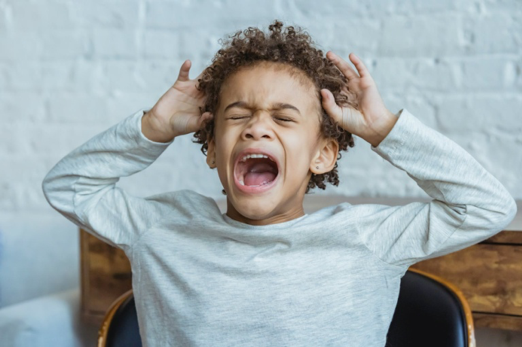
(Source)
Did you know that if misophonic people make the same Misophonia trigger sounds, it will neither irritate them nor incite any unusual behavior? Further, Misophonia trigger sounds do not have the same effect on people with misophonia. For instance, a chewing sound can incite aggression in one misophonic person while the other might not even notice it.
Here is a comprehensive list of the Misophonia trigger sounds (including human and environmental noises) that can also change in misophonic people over time.
Also, you should know that misophonic people can perceive sound triggers from visuals of certain actions as well, such as:
Scientists, researchers, and doctors have not pinpointed the real mechanism as to how the brain interconnects the sound information that triggers aggressive behavior in misophonic people. Doctors believe that Misophonia is part physical and part mental. Hence, certain sounds are able to produce automatic physical reactions.
This ensures misophonic people don’t have any problems with their ears. It means ear damage or other conditions are not responsible for the severe reactions that Misophonia triggers generate. Often, due to misclassification of Misophonia, doctors consider it obsessive-compulsive or bipolar disorder associated with anxiety effects.
Once a misophonic person comes in contact with a Misophonia trigger, the mind generates stimuli that result in the autonomic “fight or flight” response. Most people with the following conditions have higher risks of experiencing Misophonia:
What puts many people into confusion is the similarity in all the signs and symptoms of these conditions with Misophonia. For example, a bipolar person might feel the same distress or irritation as a misophonic person. Moreover, rapid heartbeats and perspiration are some more common symptoms that also exist in OCD or bipolar people.
Additionally, it might be possible that you develop Misophonia due to genetics. What’s more, a single irritating sound of childhood can begin the onset of Misophonia triggers, which may comprise various sounds in time.
Do you or someone in your family struggle with coping in their daily life due to Misophonia? Then, you should seek professional medical care from Dr. Stephen Geller Katz LCSW-R at the Misophonia Cognitive Center™. Check out our official website to learn more about Dr. Katz. You will work your way to recovery and learn coping techniques for Misophonia.
Dr. Katz treats clients from all over the world via Skype, Zoom and other popular and secure online video platforms. Dr. Katz speaks 5 languages fluently. Schedule an online session today.
References & Related Links:
https://www.verywellmind.com/misophonia-treatment-4845902
https://www.neurologylive.com/view/misophonia-triggers-management
https://misophoniainstitute.org/misophonia-triggers/
https://www.healthline.com/health/misophonia#tips-for-coping
https://www.webmd.com/mental-health/what-is-misophonia
What are some common misophonia triggers? Misophonia is a disorder in which people suffering from it have anomalously strong negative reactions to sounds like chewing, pen clicking or loud breathing. They tend to get extremely irritated by such sounds and often display their discomfort by exiting the room, wearing earphones or even yelling at the source of the sound in an attempt to stop them from doing so. This condition is also called selective sound syndrome. Common reactions of misophoniacs range from mild annoyance to extreme rage and anger.
It is interesting to note that the source of most sounds that trigger misophonia come from a human. The sound of a dog licking itself will not be as annoying for them as the sound of another human’s chewing.
Some of the most common triggers of misophonia include oral sounds, i.e., breathing or chewing — keyboard tapping, pen clicking, scratching nails against the wall or the sound of windshield wipers. Sometimes a small repetitive motion can be the cause as well — for instance, someone sitting next to you wiggling their foot.
According to a research in Amsterdam, eating sounds affect 81% of the subjects being studied. Loud breathing or nose sounds affect 64.3%. Finger or hand sounds affect 59.5%. While some even said that they get irritated by the sight of someone repeatedly shaking their knees. This means that misophonia has to do with visual triggers as well.
Since misophonia is a newly identified disorder; proper treatment options are still limited. Some doctors even confuse it with Obsessive Compulsive Disorder. Individuals suffering from it usually develop coping mechanisms to give themselves some relief. Using headphones or wearing earplugs to lower down the effect and when possible, leaving the room where there are triggering sounds. Practicing self-care, meditating and seeking a supportive therapist is a great option.
Avoiding social gatherings because of it can be a little problematic for the individual’s social growth. They can even lose friends, which is most definitely not a good thing. Social interactions are extremely important for one’s healthy personal growth. What they can do is, explain to their friends in a polite manner that they suffer from this condition and that they are sensitive to certain sounds.
Moreover, one should not simply tell misophoniacs to ‘ignore and focus on their own work’. It would be very similar to telling a depressed person to be positive and move on. Disregarding someone’s problem and telling them to ignore it and snap out of it is a very insensitive thing to do. It can be very hard for them to focus on their work if the constant triggering sound is annoying them and messing with their head.
To conclude, misophonia is real. It is as real as depression or any other disorder. If you get triggered by sounds that humans make and you feel like punching the human who’s making it, then my friend I’m afraid to let you know that you may be a misophoniac. Do not worry or panic, look it up in detail now that you know that it exists and it has a name. You may even want to discuss this matter with a Misophonia specialist if you think that it is beyond your control and needs proper treatment. Good luck.
Contact us today to schedule an appointment with the best Misophonia specialist in NYC and find out solutions, tips and tricks to tackle all your misophonia related problems.